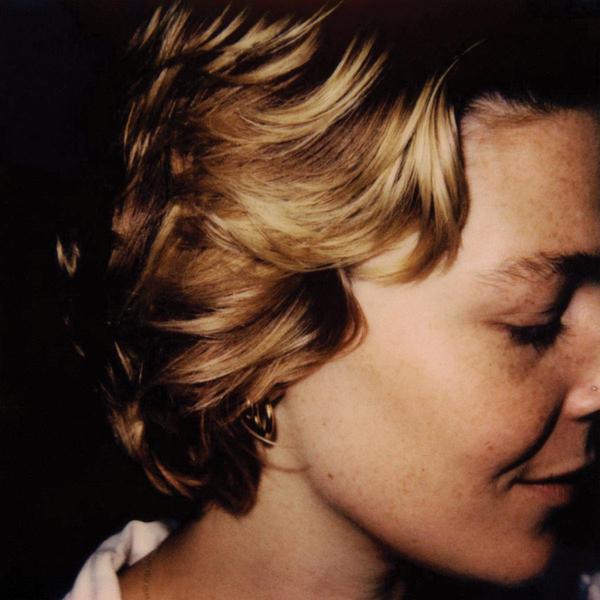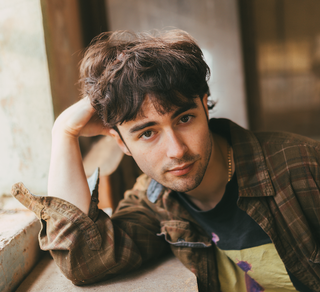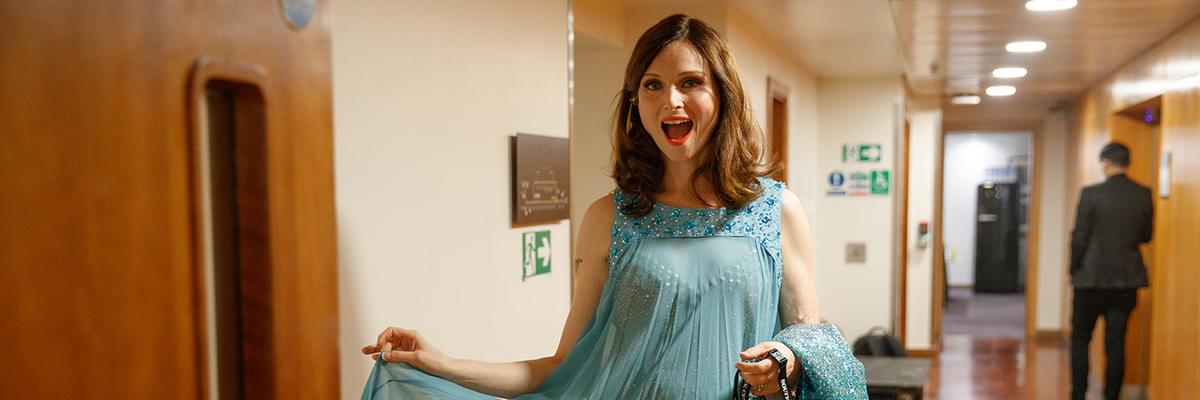
The unabashed pop star talks Matthew Neale through the songs that have soundtracked her life and musical career
The story of her pivotal songs takes in music that’s close to home, a childhood discovery of pop music and a teenage immersion in Britpop. Ellis-Bextor loves songs that take her on a journey and our anecdote about the ABBA song she’s chosen - which was written as a protest against the mistreatment of political dissidents in the Soviet Union and subsequently banned - adds to her fascination about it.
If recent single "Love is You" sounds familiar, you might just recall the sample it’s built on. The last time that beat was riding high in the charts was August 2000, when Spiller’s “Groovejet (If This Ain’t Love)” became the soundtrack to every WKD-soaked dancefloor from Ipswich to Ibiza, promptly ushering a 21-year-old Sophie Ellis-Bextor into pop stardom.
Up to that point the singer had found moderate critical and commercial success fronting '90s indie band Theaudience, including two Top 40 singles and a guest vocal spot on Manic Street Preachers B-side “Black Holes For The Young”. However, it was after taking a chance on a dance track that the pieces fell into place: her love of pop and disco coalesced in the shape of a new solo career and her first two solo singles “Take Me Home” and “Murder on the Dancefloor” soon became bona fide pop classics, which changed everything.
“To be honest, I’ve always loved it when people call me a pop star. It’s the campest thing to be called, so I’m pretty glad it’s on my CV! I’ve never seen it as my job to say ‘Please take me seriously’ and I haven’t got a chip on my shoulder about any of it. I just really love doing it.”
What’s perhaps more remarkable is the constant evolution she's worked hard to maintain. Never interested in playing it safe, Ellis-Bextor made a conscious decision that 2014’s Wanderlust would be created independently and without any disco or dance tracks, a philosophy that largely carried over into 2016’s Familia. Both were written with Ed Harcourt, both carried a sophisticated blend of hooks and heart that made them two of her finest records, despite being largely overlooked in various corners of the press. Not that she cares too much about that sort of thing.
With a greatest hits albumThe Song Diaries, an orchestral reworking of her back catalogue coming this year - not to mention her fifth child with husband and fellow musician Richard Jones - we spoke to Ellis-Bextor about what sparked her passion for music and what keeps her pop flame burning.
“Mickey” by Toni Basil
“When I was about three or four my Dad helped me to make a VHS with loads of music videos on it and this song was on there. It had Toni Basil, Adam Ant, Soft Cell on it and I used to watch it over and over, I think it sowed a lot of seeds in my mind.
“I loved the quirkiness of “Mickey”, I loved the dancing and I loved the urgency of the song. It’s so pop but it also has a sort of abstract, pointy nature to it as well. I think it’s actually quite cheeky and I found her really captivating, so I think that started off my love affair with pop and also with the medium of videos. And singers with loads of make-up on!
“I didn’t think about being a musician as a job until I was about 16. I already loved music of course, but I don’t think that really occurred to me as a thing I might do - it came and found me really, but I loved it from the get-go. It’s only really when I look back that I can see that it was all quite obvious, that I would end up doing what I do, but it kind of snuck up on me.”
“Don’t Leave Me This Way” by Thelma Houston
“For me, this is the definitive version of ‘Don’t Leave Me This Way’, I absolutely love it. It’s a good song in all its guises, but I think that as a disco lover the Thelma Houston version encapsulates the glory of disco. You always know a good song when it has the same effect on you each time you hear it, that takes you on a journey with it and this song does that. I just find it exciting - it’s got that euphoria, a little bit of heartache and tons and tons of orchestration. It really hasn’t left out any tricks.
“Disco actually came to me a bit later, not until my early 20s’ really. When I was little I was very into pop and then as a teenager it was Britpop. Then when I was 20 and I did ‘Groovejet’, that was the first time I’d ever even thought about dance music and I found that in my heart, where pop and dance met was disco.
“It all kind of clicked, especially songs from this era and I thought it encapsulated everything: you get the melody and the story. I loved the fact that quite often the songs were sung by people who’ve really lived it, it’s not just the whippersnappers, but in fact the older and wiser the singer’s got, the more depth the lyric would have. I loved the bittersweet nature of it all; some of those disco songs are so sad, or they’re really at the end of their tether.
“Basically a song has to have a bit of soul to it, it has to be telling a story, or else why have you bothered? Sometimes it’s really lovely to hear a song that’s just like, ‘I’m in love with you and I feel wonderful’, but the songs that really carry you through many more emotions, and the complexities of how people feel, are the songs that tackle the grey areas.”
“Like A Prayer” by Madonna
“I was a big Madonna fan. Her, Michael Jackson and Bowie were my first real musical crushes and I had all of them up on my wall. Madonna was a really exciting artist to follow - you never knew what she was going to do next, you never felt like she answered to someone else and she was very much her own boss with her own message - and I found that really exciting.
“The Like a Prayer album was very much the pinnacle of all that. I guess I must have been about nine or ten when it came out, so I found the message a bit confusing and perhaps a bit adult, but it was also completely pop as well. ‘Like a Prayer’ is actually quite a deceptive pop song, because it takes on board so many themes; I think that to tackle love and sex and religion all in one three-minute song is pretty phenomenal.
“It’s also played by some brilliant musicians, in fact the guy who played bass on ‘Like a Prayer’ is Guy Pratt, who is a friend now and he played bass on ‘Murder on the Dancefloor’. People can be really snooty about both pop and disco, but in terms of musicianship it’s some of the most challenging stuff to play, not to sing necessarily, but if you don’t get that rhythm section locked in, it’s not going to sound as good.”
“Fill My Little World” by The Feeling
“I had to involve this because it’s so much a part of the fabric of my life, and particularly with this song. It was a real soundtrack to an era, a really important part of my life when Richard and I got together and we had our first baby and we got married.
“He’d been in my band before that, so we already knew each other. When we started dating he said ‘I’m in a band myself actually’ and I just thought, ‘Oh God, please let me like them!’ He gave me a CD with some demos on and I remember thinking it was going to be so awkward if I didn’t like any of them; it included ‘Fill My Little World’ along with a few others that ended up being on the first record. So frankly I felt really relieved and then I felt really impressed. I started going along to the gigs and it was just a special time really, it was quite magical.
“They really are the real deal. I’ve seen them millions of times now, so if anyone was going to be getting bored of it by now it would be me! But honestly, I’ve always enjoyed them live, they’re really good, they really deliver and they can all really play. They’ve also known each other since they were teenagers and there’s so much that goes unsaid, which is really lovely.”
"Groovejet (If This Ain't Love)" by Spiller
“I included this because it was such a moment for me. Not necessarily because it was successful - although obviously that was lovely - but in the significance of the song before all that happened.
“I’d been in my indie band and very much in that world. I’d been quite blinkered about it all, you were in your own camp - especially in those days - and it was very uncool to step outside of your camp. It’s funny, because it really has changed so much since then, but hopping between genres just wasn’t a thing, it wasn’t explored in the same way as it is today and I was very much a part of all that too. So when I got handed this dance track for the instrumental of ‘Groovejet’ my instant reaction was ‘I’m in an indie band, why on earth would I do a dance record?’
“Then my band split up, we lost our deal and I was feeling a bit high and dry. I found the CD of ‘Groovejet’ again and I thought “you know what? There’s something about it I actually quite like.” I went for a meeting by myself at EMI, I didn’t even tell my manager, he was on holiday and when he got back I said, “I’ve decided to do this dance track, I don’t really know why but it just feels like the right thing to do right now.”
“For me it was trying to shake things up a little bit and move things forward and I just wanted something to happen I think, but the success of the song took me by surprise, I had literally no idea it was going to be so successful. I used to do interviews and say, “Oh, I don’t like dance music,” and the PR guy would be there saying, “Can you stop saying you don’t like dance music?” But to me that was kind of the point, if someone who doesn’t like dance music can want to be involved in a track like this, then that might explain a little bit of why it’s got a crossover appeal.
“It also opened my eyes to that idea of "You know what? If something feels right in your gut then you can actually get away with whatever," because as long as it’s authentic people are a lot more willing to go on a journey with you, and it’s also really healthy for you. Since then it’s something I do quite frequently, I’ll get to the point where I feel quite comfortable with something, or need a bit of stimulation, and I’ll run in completely the opposite direction. Sometimes it feels a bit scary and a bit unknown, but I actually really like the challenge of it.
“The Song Diaries is a good example of that, because I kind of did it on a whim. People have been talking to me for a while about a greatest hits and it never felt like the right time, but then it was coming up to 21 years since I first signed my deal with Theaudience and I thought, “Maybe now would be quite fun.” Amy Langley, who’s a friend of mine, had done a whole string arrangement of ‘Groovejet’ and it sounded so different, it really brought something out of the track that I wasn’t expecting. I took her out for lunch just over a year ago and asked her how she’d feel about it doing it for a load of songs.
“To be honest, making the record there’s been quite a lot of points when I really wasn’t quite sure what it was I was trying to achieve with it! But as it took shape I remembered that thing about new challenges, and how exciting it was to breathe new life into those songs. It’s also meant I could do things live that I couldn’t do before. We just did our first gig and I’ve been loving it, I’m really enjoying myself.”
“Message To My Girl” by Split Enz
“Part of the reason I chose ‘Message To My Girl’ is because not a lot of people know it. I’m not even quite sure how I stumbled across it in the first place, but I think I had a Greatest Hits collection with it on.
“Firstly I think it’s a completely beautiful love song, Neil Finn is a brilliant writer and he’s got a great voice. It’s really tender and I think it’s quite a sophisticated song in terms of how it’s written – it just sounds like it’s come from the heart. Of course, songs don’t have to be successful to be really significant, I think if you’re busy getting on with what you do, particularly when your career’s starting out, it can become easy to judge your worth by where your work’s reached in the charts, but it doesn’t have to be a massive hit. Sometimes it can feel more like your own if it isn’t.”
"Girls And Boys" by Blur
“I loved Blur and Oasis and never felt like I had to choose between them, Britpop was a really significant era for me. My musical education had come from my Dad’s vinyl collection, he’d play me The Doors, The Who, The Beatles and Bowie, all this great stuff and he’d taken me along to see Pink Floyd as my first ever gig. He was really keen for me to get it and to get excited. Now I really appreciate all of that, but at the time I was like, ‘Okay, but this is all coming from my Dad,’ it didn’t really set my world on fire.
“Then when Britpop happened, I thought, ‘Ah, now this is something that’s all about my generation and my people. Suddenly I know much more about this than my Dad and I want to go and see these bands.’ I was living in London, so everything was on my doorstep.
“It felt like a really exciting time to be a teenager and into music. You could be out and about and see a kid across the road wearing another Adidas zip-up hoodie and be like, ‘Ah, we like the same music!’ It felt really good to be part of a tribe and I’d never experienced that before, it was really quite monumental to me, there was the music press everywhere and music programmes on the telly. I suppose looking back the whole teenage trend was music-based and I don’t think it is as much for teenagers at the moment.
“But a lot of it has passed the test of time. The Blur and Pulp stuff still sounds great doesn’t it? I heard Oasis the other day and it still sounds really cool, having said that, we knew some of it was rubbish at the time didn’t we?”
“The Visitors” by ABBA
“I only got introduced to this song relatively recently. I was driving to Glastonbury with my husband a few years back and Jonny Woo was on the radio, he was already at Glastonbury and 6 Music had asked him to choose a few songs and ‘The Visitors’ was one of them. Like I said before, it’s one of those songs that takes you on a journey, but that’s hilarious that it has this massive political background too!
“I think ABBA are amazing, they’ve got lots of songs that are proper complex, grown-up song-writing and they’re also really prolific songwriters. There’s this really cool quote I read about song-writing, where they say that you can write lots of songs and not every song will be a hit, but you have to keep writing to find it. They said it’s a bit like there’s a dragon in the cave, most days you’ll go to the cave and you won’t see the dragon, but if you never go into the cave you’ll never see it, so you have to keep going in case he comes out. I think there’s a lot of truth in that if you’re doing something creative, a lot of it’s a muscle that you need to keep flexed, because otherwise you’re never going to get to that point where the stars do align.
“Writing a song with someone is quite a weird process really. There’s no hiding place, a lot of it is a confidence trick and you need to get over your embarrassment, because chucking ideas out there is quite cringey sometimes. Part of that trick is working with people who make you feel safe, so that you don’t worry about them laughing about everything you do. Also, I think it’s that thing of getting older and not really caring so much if you make a mistake, or saying something’s stupid, because it’s really just about joining the dots that work together.”
“Church of No Religion” by Ed Harcourt
“I say this as someone who writes predominantly collaboratively, I do write a little bit on my own, but I think I write much better if I’ve got someone to bounce ideas off. I think there’s a degree of self-editing that I don’t do when left to my own devices.
“The last couple of my albums I’ve done with Ed Harcourt, which is why I’ve included one of his songs. He and I work very neatly together in terms of writing songs that go on to be used by us. We’ve actually got quite a high success rate and I think we’ve only written maybe one or two songs that we haven’t recorded for an album. Certainly with Wanderlust we just wrote the album and it was done; we didn’t have anything left because we felt quite sure-footed. It’s such a nice feeling when it all comes together like that.
“We do have the personal connection but hand on heart, that album Lustre was my favourite album of that year. It’s beautiful and I still listen to it regularly of my own free will! I just think it’s so gorgeous. He’s a complete master with melody anyway and Ed is very articulate and clever with his lyrics too, trying to put into words how he feels about the human condition. And his faults, he’s often singing about the parts of him that he’s still coming to terms with and I always think that resonates.
“‘Church of No Religion’ is a really good example of that and I love the scope of it, but like any great song, it would sound really good scaled back too. I think that’s the beauty of music.”
The Song Diaries is released 15 March
Get the Best Fit take on the week in music direct to your inbox every Friday
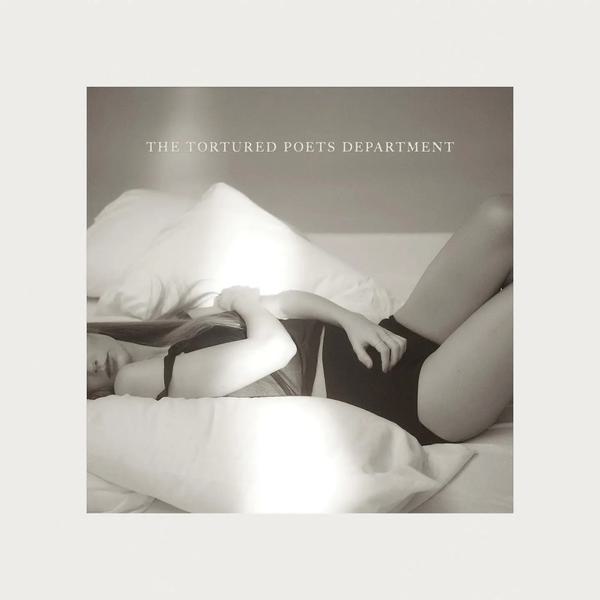
Taylor Swift
The Tortured Poets Department
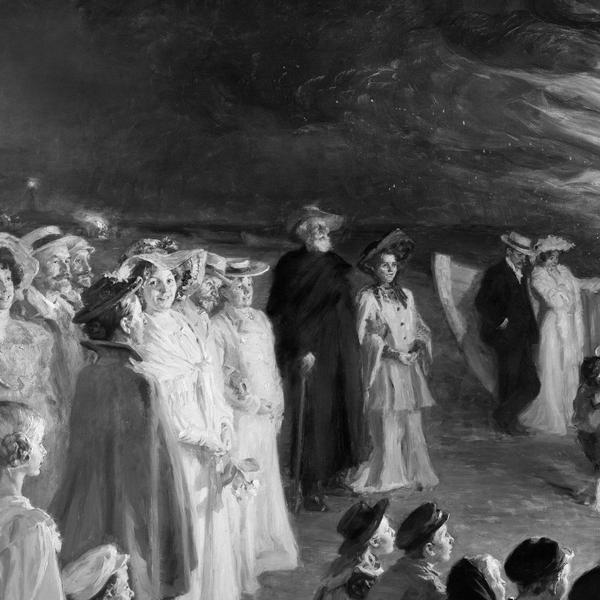
Chanel Beads
Your Day Will Come
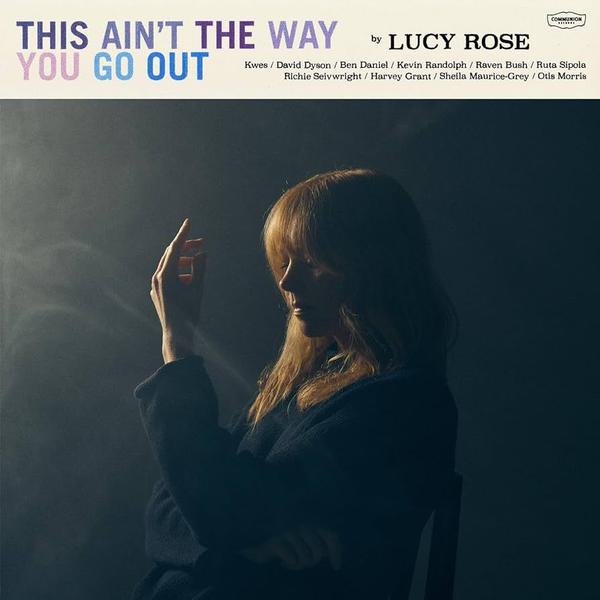
Lucy Rose
This Ain't The Way You Go Out
